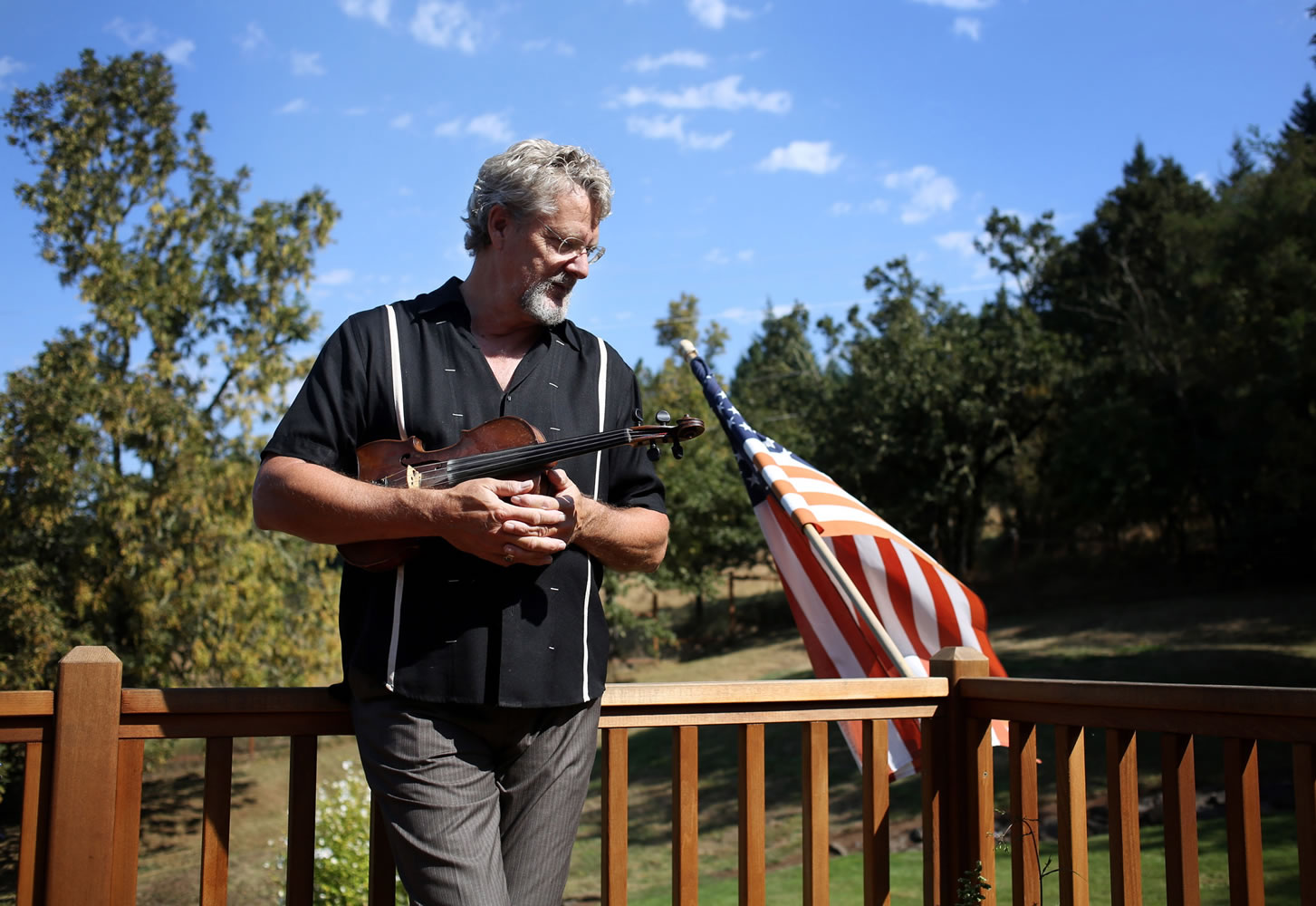EUGENE, Ore. — If Stephane Grappelli had been the one to lose use of two fingers after a fire, it is possible “hot jazz” would not have been invented, or at least not by him and guitarist Django Reinhardt.
After a fire damaged Reinhardt’s hand, the young man used his injury to innovate. But the fretless violin Grappelli played would not have been so easy to adapt, requiring as it did fleet fingers for quick, precise changes.
Those quick changes are no longer fun for local musician Brian Price, who played his last show with Hot Club Eugene on Sept. 15. The 63-year-old multi-instrumentalist is leaving professional music because of a hand disorder. He has been performing since age 7, and Sept. 22 he played his final concert, with his other band, Spiritfarm.
Over the years, he has been in all sorts of groups, from blues to jazz to country, playing guitar, fiddle, mandolin and keyboards. But because of a painful hand condition called Dupuytren’s contracture, he has had to slow down.
“I’ve sort of adjusted to some things,” he said, seated at his piano in his Eugene living room. “The violin is not going to happen. Too many bad fingers.”
Fingers pulled down
The pinky finger of his left hand is bent down permanently in a dramatic fashion — at almost a right angle from the knuckle, with the longest part of the finger parallel to the palm. On the same hand, his pointer finger is not as bent, but an unwanted ball of tissue is forming on the palm under the old surgical scars.
The condition first appeared when Price was 35 and living in the San Francisco Bay Area. It didn’t alarm him. He figured doctors would be able to fix it.
They did, but not permanently. In Dupuytren’s, fascia in the hand extends beyond where it is useful, attaching gradually contracting cords to the tendons.
Three surgeries later, Price does not think trying again will be worth the expense, especially after how rapidly his symptoms returned after his last surgery.
In his early days, Price made money as a session player and touring artist. He played with the Jerry Garcia Band, the Grateful Dead and David Grisman.
Janis Ian invited him on the road after he sat in with her band, he said.
“I was kind of on the fringe of a bunch of famous people,” he said.
Price learned he did not fit in well with musicians who liked to do drugs. He didn’t like being on the road away from his then-wife, so he said he decided to continue professionally, but part time.
Spiritfarm
About 20 years ago he found a musical brother in Percy Franklin, who then introduced him to Jim Daugherty. The three started playing about 15 years ago under the name Spiritfarm.
With the band’s other two members, Erik Baker and Michael Anderson, they have seen the end coming.
“He’s made his peace with it, I know,” said Franklin, 65. “He plays better with fewer fingers than a lot of people play with all their fingers. He was learning how to substitute, (but) his hands hurt for a couple hours afterward.
Daugherty said that as singer-songwriters, both he and Franklin can be sensitive about their work. But Price had an uncanny way of suggesting an idea for a different way to arrange a song and they never felt like he was meddling. Rather, his suggestions often took their songs to places they never would have thought of, and that better served the song.
“Percy and I are basically folk singers,” said Daugherty, who turned 61 on Sept. 21. “What Brian did is, he took every song and just kind of tweaked it.
“He’s really somewhat of a musical genius. You can watch the gears turning when we are in the middle of the song.”
Price said he still plans to play for his grandchildren and for short stints socially, but Saturday marks the conclusion of his professional life as a musician after a lifetime of playing.
By his own assessment, Price was a musician’s musician. His favorite thing was sitting in and trying to create sounds on the fly that fit with what others were playing. “That’s what I’m going to miss the most,” he said. “You kind of disappear. That is a very cool experience — almost like you are channeling the music.”
Price admitted there is some pride and ego involved with letting go. But letting go is what he knows he must do.
“I knew this was coming,” he said. “I want to kind of end on a high note.
“… It’s been a lot of fun and I have a lot to be grateful for.”



